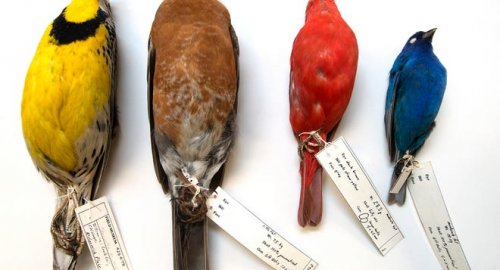
Birds are migrating earlier due to climate change

- 23-06-2021, 17:49
INA – Sources
With smaller bodies, longer wings and earlier migrations, North American birds are seeing the effects of climate warming, according to a University of Michigan- Ann Arbor research team.
Environmental pressure is causing birds to advance their spring migration, leading to natural selection preferring longer wings, said Marketa Zimova, U-M evolutionary biologist, in a news release.
A study by Zimova and other U-M researchers, released Monday in the Journal of Animal Ecology, analyzes the connection between the formation of birds and earlier migration times, according to the release.
Advances in biological cycles, flowering plants blooming earlier and reduction in bird body size are advances in biology and and are among the most common biological responses to global warming.
During U-M's study, researchers unexpectedly discovered that birds are "changing in size and shape independently of changes in their migration timing," Zimova said in the release. Biological changes and early migration are taking place at the same time but are unrelated.
Birds are migrating faster, with the earliest spring migrants arriving "nearly five days sooner than they did four decades ago," and the earliest fall migrants heading "south about 10 days earlier than they used to," stated the release.
"Since smaller bodies are more efficient at dissipating heat, perhaps smaller birds gained a competitive advantage and were favored by natural selection. Alternatively, the body-size reductions could be the result of a process called developmental plasticity, the ability of an individual to modify its development in response to changing environmental conditions."
The study is believed to be the first to use bird specimens from building collisions in Chicago to examine long-term trends in bird migration timing and was supported by U-M's Institute for Global Change Biology at School for Environment and Sustainability.
"These findings suggest that biotic responses to climate change are highly multidimensional," according to the study.
China holds live fire drills in East China Sea but Taiwan says none nearby
- International
- 01:30
Al-Sudani Conducts a Field Visit to Al-Rasheed Street
- politics
- 11:28
Al-Sistani: Tomorrow, the 29th of Ramadan
- Local
- 25/03/29
SOMO: Iraq has the fourth-largest proven oil reserves in the world
- Economy
- 25/03/26
Al-Amiri warns of any war between Iran and the US
- politics
- 25/04/01












